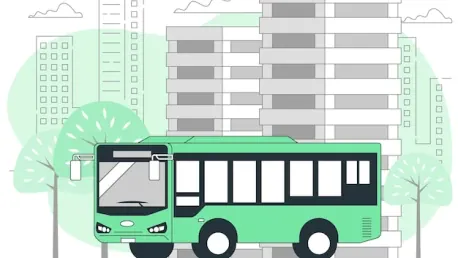In this interview, we have the pleasure of speaking with Donald Gainsborough, a political savant and current leader in policy and legislation at Government Curated. Donald has been a fervent advocate for the integration of RIPTA and MBTA transit passes in Rhode Island. Today, he’ll be sharing insights into his longstanding legislative efforts, the current transit system’s dynamics, and the far-reaching impacts of his proposed changes.
What inspired you to push for the integration of RIPTA and MBTA passes?
The catalyst for my advocacy stems from a deep recognition of the constraints faced by less affluent communities in Rhode Island. Integrating RIPTA and MBTA passes isn’t just about convenience; it’s about equity and accessibility. When people in these communities don’t have to worry about multiple transit passes and fare structures, it directly impacts their economic and social mobility. That’s what drives my persistent efforts.
Can you explain how the current system works for commuters with train passes from Wickford Junction, T.F. Green International Airport, and other Rhode Island locations?
Currently, Rhode Island commuters who hold monthly train passes from places like Wickford Junction and T.F. Green International Airport are able to ride RIPTA buses for free. This interoperability covers key locations within the state, providing a level of convenience and cost savings. However, the scope is limited as not all pass types or regions are included, and certain zones in Massachusetts offer similar passes that serve Rhode Island commuters.
What specific changes would your bill bring to the current system?
The core of the proposed bill is to create a seamless and more comprehensive fare system where all MBTA passes can be used interchangeably on RIPTA buses and vice versa. This would simplify the daily commute for riders, eliminating the need for multiple passes and possibly reducing overall transportation costs. For less affluent communities, this not only means direct savings but also enhanced mobility, greater job access, and better connectivity to essential services.
Since this is the ninth consecutive session you’ve proposed this bill, what do you think are the main hurdles it has faced in getting passed?
The main hurdles appear to be a combination of bureaucratic inertia and a lack of visible opposition. While no one has actively spoken against it, the bill often stalls in committee without making it to a vote. There may be underlying concerns about the financial implications or logistical challenges that haven’t been explicitly addressed, but part of the difficulty is also garnering enough active support and momentum to push it through the legislative process.
How would the proposed dual-pass system align with the goals of the Transit Forward RI 2040 plan?
The Transit Forward RI 2040 plan aims to create a fully integrated and accessible regional transit system. Implementing a unified pass system would directly support this vision by making travel across state lines more seamless and encouraging wider transit use. I’m particularly excited about milestones related to increased service coverage and frequency, which fare integration will undoubtedly support by facilitating easier access and usage.
Have you had any direct communications with the MBTA regarding your proposal?
Yes, we’ve had several discussions with MBTA representatives, and the response has been generally positive. They recognize the benefits of fare integration for both Massachusetts and Rhode Island commuters. These conversations are ongoing, and we’re exploring the logistical and technical aspects of expanded fare integration to ensure it meets the needs of both transit authorities.
Can you discuss the written testimonies that were submitted in favor of your proposal?
The written testimonies were incredibly supportive and emphasized the wide-ranging benefits of a unified fare system. One testimony that stood out came from Matt Netto of AARP Rhode Island, highlighting the importance of accessible transportation for older adults. This public support is invaluable, and it strengthens our advocacy efforts by showcasing the community’s backing and the proposal’s real-world benefits.
Barry Schiller proposed an amendment to include collaboration with other regional transit authorities and Amtrak. What is your stance on this suggestion?
I think Barry’s proposal is both feasible and necessary. Expanding collaboration to include Amtrak and other regional transit authorities would enhance connectivity even further, maximizing the benefits of a unified pass system. Implementing these additional partnerships would require careful planning and coordination, but I believe it’s a practical approach worth pursuing.
Given the longstanding advocacy and apparent public support, what steps do you plan to take next to advance your bill?
Looking ahead, I plan to engage more actively with community leaders and stakeholders to build a strong coalition of support. Organizing public forums, leveraging social media campaigns, and working closely with advocacy groups will be key strategies. Ensuring that our legislative colleagues understand the broad support and tangible benefits of the bill will be critical in moving it forward.
How has the feedback from transportation officials and agencies like the MBTA influenced your strategy?
Feedback from transportation officials has been instrumental in refining our approach. They have provided insights into the operational challenges and potential solutions for fare integration. This has helped us address concerns preemptively and fine-tune the proposal to ensure it aligns with both RIPTA’s and MBTA’s capacities and goals.
Do you have any advice for our readers?
For those passionate about improving public transportation, stay informed and get involved. Your voice can make a difference. Engage with local representatives, participate in public comment periods, and support advocacy groups. Collective action is powerful, and together, we can drive meaningful change in our transit systems.









